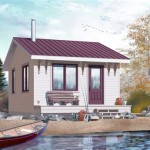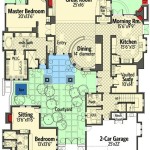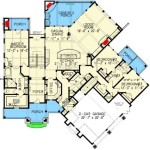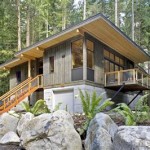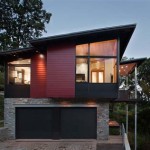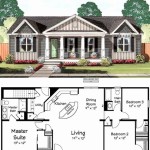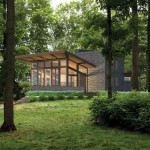Custom House Plan Design refers to the process of creating a unique and personalized blueprint for a residential structure. It involves collaborating with an architect or designer to transform your specific requirements and aspirations into a detailed plan that guides the construction of your dream home. For instance, if you envision a sprawling ranch-style dwelling with an open floor plan and a wrap-around porch, custom house plan design can bring your vision to life.
The allure of custom house plan design lies in its ability to cater to your individual lifestyle, needs, and preferences. Unlike pre-designed or stock plans, custom plans are meticulously tailored to your specific site conditions, ensuring that your home seamlessly blends with its surroundings. Moreover, custom plans offer unparalleled flexibility, allowing you to incorporate specific features and design elements that reflect your personality and aspirations.
Now that we have explored the essence of custom house plan design, let’s delve into the nitty-gritty of the process and discover how you can harness its power to create your dream home. In the following sections, we will explore the benefits of custom house plan design, provide a step-by-step guide to the design process, and showcase inspiring examples that demonstrate the transformative power of custom design.
Custom house plan design offers a myriad of advantages, empowering you to create a home that truly reflects your unique style and meets your specific needs. Here are eight key points to consider:
- Tailored to your lifestyle
- Flexibility in design
- Optimized space planning
- Enhanced energy efficiency
- Increased property value
- Unique and personalized
- Site-specific design
- Professional guidance
Custom house plan design empowers you to create a home that is not just a structure but an extension of your personality and aspirations. It provides the flexibility to incorporate your desired features, optimize space utilization, and enhance energy efficiency, ultimately resulting in a home that is uniquely yours.
Tailored to your lifestyle
Custom house plan design revolves around the concept of creating a home that seamlessly aligns with your unique lifestyle. Unlike generic or pre-designed plans, custom plans allow you to incorporate specific features and elements that cater to your daily routines, hobbies, and personal preferences.
- Activities and hobbies:
If you are an avid cook, your custom plan can include a spacious kitchen with a large island for meal preparation and entertaining guests. If you enjoy hosting movie nights, a dedicated home theater with comfortable seating and a state-of-the-art sound system can be incorporated into the design.
- Family dynamics:
The design can be tailored to accommodate the needs of your family. A growing family may require additional bedrooms and bathrooms, while a couple downsizing may prefer a smaller home with an emphasis on accessibility and low maintenance.
- Work-life balance:
If you work from home, a dedicated home office with ample natural light and privacy can be incorporated into the plan. The design can also include flexible spaces that can adapt to changing needs, such as a room that can serve as both a guest bedroom and a home gym.
- Personal style and preferences:
Custom house plan design empowers you to express your personal style and preferences throughout your home. From the architectural style to the interior finishes and decor, every aspect of the design can be tailored to reflect your taste and create a space that truly feels like your own.
By carefully considering your lifestyle and incorporating elements that enhance your daily routines and bring you joy, custom house plan design elevates your home beyond mere shelter into a haven that supports your well-being and reflects your unique personality.
Flexibility in design
Custom house plan design offers unparalleled flexibility in design, allowing you to create a home that is not only unique but also adaptable to your evolving needs and preferences. Unlike pre-designed plans, custom plans are not bound by rigid templates or limitations, providing you with the freedom to explore a wide range of possibilities.
- Tailored to your site:
Custom plans can be meticulously tailored to the specific characteristics of your building site. Whether you have a sloping lot, a narrow frontage, or a unique view, a custom plan can be designed to take full advantage of your site’s potential while addressing any challenges it may present.
- Adaptable to your needs:
As your lifestyle and needs change over time, your custom home can adapt with you. The flexibility of custom design allows for future additions, renovations, or modifications to be seamlessly integrated into the original plan, ensuring that your home continues to meet your evolving requirements.
- Multiple design options:
Custom house plan design empowers you to explore a multitude of design options and create a home that truly reflects your personal style and taste. From traditional to contemporary, rustic to modern, the possibilities are endless. You can work closely with your architect or designer to develop a plan that perfectly aligns with your vision.
- Efficient use of space:
Custom plans prioritize efficient use of space, ensuring that every square foot of your home is utilized to its full potential. By carefully considering your storage needs and daily routines, your architect or designer can create a plan that maximizes space and minimizes wasted areas.
The flexibility inherent in custom house plan design empowers you to create a home that is not just a structure but a reflection of your unique personality and aspirations. It provides the freedom to explore a myriad of design possibilities and create a space that seamlessly adapts to your lifestyle, both now and in the future.
Optimized space planning
Custom house plan design places a strong emphasis on optimizing space planning, ensuring that every square foot of your home is utilized efficiently and effectively. By carefully considering your lifestyle, needs, and preferences, your architect or designer can create a plan that maximizes space and minimizes wasted areas.
- Efficient use of vertical space:
Custom plans make the most of vertical space by incorporating features such as vaulted ceilings, mezzanines, and built-in storage. These elements not only add visual interest but also create the illusion of more space and provide additional storage options.
- Multi-functional spaces:
Custom plans often incorporate multi-functional spaces that serve multiple purposes. For example, a living room can also function as a dining area, or a guest bedroom can double as a home office. This clever use of space allows you to create a home that is both spacious and functional.
- Customized storage solutions:
Custom plans can include tailored storage solutions that cater to your specific needs. Built-in shelves, drawers, and closets can be designed to maximize storage capacity and keep your belongings organized. By incorporating ample storage space into the plan, you can minimize clutter and create a more streamlined and efficient living environment.
- Open floor plans:
Open floor plans are a popular choice in custom house plan design as they create a sense of spaciousness and foster a more cohesive living environment. By removing unnecessary walls and partitions, open floor plans allow natural light to flow freely throughout the home, making it feel larger and more inviting.
Optimized space planning in custom house plan design results in a home that is not only visually appealing but also highly functional and efficient. By carefully considering your needs and preferences, your architect or designer can create a plan that maximizes every inch of space, providing you with a comfortable and well-organized living environment.
Enhanced energy efficiency
Custom house plan design places a strong emphasis on energy efficiency, ensuring that your home is not only comfortable and functional but also environmentally friendly and cost-effective to maintain. By incorporating sustainable design principles and utilizing energy-efficient materials and systems, custom plans can significantly reduce your energy consumption and carbon footprint.
- Optimized building envelope:
The building envelope refers to the exterior shell of your home, including the walls, roof, windows, and doors. Custom plans prioritize the optimization of the building envelope to minimize heat loss and air infiltration. This is achieved through proper insulation, air sealing, and the use of energy-efficient windows and doors.
- Passive solar design:
Passive solar design harnesses the power of the sun to heat and cool your home naturally. Custom plans can incorporate features such as south-facing windows, thermal mass, and overhangs to maximize solar gain in the winter and minimize it in the summer. This can significantly reduce your reliance on conventional heating and cooling systems.
- Energy-efficient systems:
Custom plans can include the integration of energy-efficient systems, such as high-efficiency HVAC systems, appliances, and lighting fixtures. These systems consume less energy, reducing your monthly utility bills and contributing to a more sustainable lifestyle.
- Renewable energy sources:
Custom plans can also incorporate renewable energy sources, such as solar panels, geothermal heating and cooling, or wind turbines. These systems can generate clean energy, further reducing your reliance on fossil fuels and contributing to a greener future.
By incorporating these energy-efficient measures into your custom house plan design, you can create a home that is not only comfortable and stylish but also environmentally friendly and cost-effective to maintain. You can enjoy a healthier living environment, reduce your carbon footprint, and save money on energy bills for years to come.
Increased property value
Custom house plan design not only enhances the comfort, functionality, and energy efficiency of your home but also contributes to its long-term value. By creating a unique and personalized home that meets your specific needs and preferences, you can potentially increase its resale value and make it more desirable to potential buyers in the future.
- Unique and differentiated:
Custom homes stand out from cookie-cutter developments and mass-produced designs. Their uniqueness and differentiation make them more attractive to buyers who are looking for a home that reflects their individual style and personality. This exclusivity can translate into a higher resale value.
- Tailored to your needs:
Custom homes are designed to meet the specific needs and preferences of the owner. This means that the home is more likely to have the features and amenities that buyers are looking for, making it more appealing and potentially increasing its value.
- High-quality construction:
Custom homes are often built with higher quality materials and construction methods than production homes. This attention to detail and craftsmanship results in a more durable and well-built home that is likely to last longer and require less maintenance. These factors contribute to a higher perceived value and increased resale potential.
- Desirable location:
Custom homes are often built in desirable locations that offer scenic views, privacy, or proximity to amenities. These factors can significantly increase the value of the property and make it more sought-after by potential buyers.
While the cost of custom house plan design and construction may be higher upfront, the potential return on investment in the form of increased property value can be substantial. By creating a unique and personalized home that meets your specific needs and preferences, you can not only enhance your quality of life but also make a sound financial investment.
Unique and personalized
Custom house plan design places a strong emphasis on creating a home that is not just a structure but a reflection of your unique personality and aspirations. Unlike pre-designed or stock plans, custom plans are meticulously tailored to your specific needs, preferences, and lifestyle, resulting in a home that is truly one-of-a-kind.
One of the key advantages of custom house plan design is the ability to incorporate unique and personalized features that cater to your specific requirements. Whether you are an avid cook who dreams of a spacious kitchen with a large island for meal preparation and entertaining guests, or an art enthusiast who envisions a dedicated art studio with ample natural light and display space, custom house plan design empowers you to transform your vision into reality.
Furthermore, custom house plan design allows you to create a home that seamlessly blends with your personal style and taste. From the architectural style to the interior finishes and decor, every aspect of the design can be tailored to reflect your unique personality and create a space that truly feels like your own. Whether you prefer a traditional Victorian home with intricate detailing or a sleek and modern abode with clean lines and open spaces, custom house plan design provides the flexibility to bring your dream home to life.
Additionally, custom house plan design takes into consideration the specific characteristics of your building site. Whether you have a sloping lot, a narrow frontage, or a unique view, a custom plan can be designed to take full advantage of your site’s potential while addressing any challenges it may present. This ensures that your home is not only visually appealing but also well-suited to its surroundings, creating a harmonious relationship between the built and natural environments.
Site-specific design
Site-specific design is a fundamental aspect of custom house plan design that involves tailoring the plan to the unique characteristics of your building site. Unlike generic plans that are designed to fit on any lot, site-specific plans are carefully crafted to take full advantage of your site’s potential while addressing any challenges it may present.
- Topography and slope:
The topography and slope of your building site can significantly impact the design of your home. A custom plan can be designed to work with the natural contours of the land, minimizing the need for extensive grading and excavation. This can result in cost savings and a more harmonious relationship between the built and natural environments.
- Orientation and solar access:
The orientation of your building site can have a major impact on the energy efficiency and comfort of your home. A custom plan can be designed to maximize solar gain in the winter and minimize it in the summer, reducing your reliance on conventional heating and cooling systems. This can lead to lower energy bills and a more comfortable living environment.
- Views and privacy:
If your building site offers scenic views or privacy concerns, a custom plan can be designed to take advantage of these factors. Large windows and balconies can be strategically placed to capture stunning vistas, while privacy screens and landscaping can be incorporated to create a secluded outdoor space.
- Existing vegetation and natural features:
Preserving existing vegetation and natural features on your building site can enhance the beauty and sustainability of your home. A custom plan can be designed to work around mature trees, rock formations, and other natural features, incorporating them into the overall design and creating a unique and harmonious living environment.
Site-specific design is not simply about fitting a house onto a lot but about creating a home that is in harmony with its surroundings. By carefully considering the unique characteristics of your building site, your architect or designer can create a custom plan that maximizes the potential of your property and creates a truly exceptional living space.
Professional guidance
Professional guidance is an invaluable aspect of custom house plan design, ensuring that your project is executed with the highest level of expertise and attention to detail. Working with an experienced architect or designer provides numerous advantages throughout the design and construction process.
- Expertise and knowledge:
Licensed architects and designers possess extensive knowledge of building codes, zoning regulations, and sustainable design principles. They can guide you through the complexities of the design process, ensuring that your custom home meets all necessary requirements and incorporates the latest advancements in home design.
- Objectivity and experience:
A professional designer brings an objective perspective to the design process, helping you make informed decisions based on their experience and expertise. They can provide valuable insights, suggest innovative solutions, and help you avoid costly mistakes.
- Space planning and functionality:
Professional designers excel at space planning and functionality. They can help you optimize the use of space, create efficient traffic flow, and design a home that meets your specific needs and lifestyle.
- Cost estimation and budgeting:
Architects and designers can provide accurate cost estimates and help you stay within your budget. They have established relationships with contractors and suppliers, ensuring that you receive competitive pricing and high-quality materials.
Investing in professional guidance for your custom house plan design is not just an expense but a wise investment that can save you time, money, and stress in the long run. By working with an experienced architect or designer, you can ensure that your dream home is not only beautiful and functional but also built to the highest standards of quality and safety.










Related Posts

